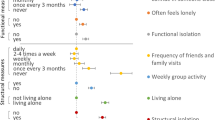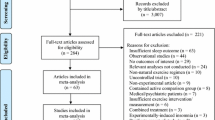Abstract
Engaging in a wide range of pleasant activities may provide mental health benefits, particularly for those genetically predisposed to depression. This study examined associations between pleasant activity variety, mental health, and genetic vulnerability in two U.S. cohort studies (N = 2,088). Participants reported depressive symptoms, mental healthcare visits, and engagement in pleasant activities over the past month. Greater variety of pleasant activities was associated with fewer depressive symptoms in both study samples. Individuals engaging in more diverse pleasant activities also had fewer mental health visits. Individuals with a higher genetic risk for depression experienced a stronger negative association between variety of pleasant activities and depressive symptoms compared to those with a lower genetic risk. These results highlight the potential of diverse pleasant activities as a means to enhance well-being, particularly among individuals genetically susceptible to depression.

Similar content being viewed by others
References
Bagheri, L., & Milyavskaya, M. (2020). Novelty–variety as a candidate basic psychological need: New evidence across three studies. Motivation and Emotion, 44, 32–53.
Bylsma, L. M., Taylor-Clift, A., & Rottenberg, J. (2011). Emotional reactivity to daily events in major and minor depression. Journal of Abnormal Psychology, 120(1), 155.
Cleary, J. L., Fang, Y., Zahodne, L. B., Bohnert, A. S., Burmeister, M., & Sen, S. (2023). Polygenic risk and social support in predicting depression under stress. American Journal of Psychiatry, 180, 139–145.
Cuevas, A. G., Mann, F. D., Williams, D. R., & Krueger, R. F. (2021). Discrimination and anxiety: Using multiple polygenic scores to control for genetic liability. Proceedings of the National Academy of Sciences, 118(1), e2017224118.
Cuijpers, P., van Straten, A., & Warmerdam, E. H. (2007). Behavioral treatment of depression: A meta-analysis of activity scheduling. Clinical Psychology Review, 27(3), 318–326.
Dimidjian, S., Barrera, M., Jr., Martell, C., Muñoz, R. F., & Lewinsohn, P. M. (2011). The origins and current status of behavioral activation treatments for depression. Annual Review of Clinical Psychology, 7, 1–38.
Ekers, D., Webster, L., Van Straten, A., Cuijpers, P., Richards, D., & Gilbody, S. (2014). Behavioural activation for depression; An update of meta-analysis of effectiveness and sub group analysis. PLoS ONE, 9(6), e100100.
Faul, F., Erdfelder, E., Lang, A.-G., & Buchner, A. (2007). G* Power 3: A flexible statistical power analysis program for the social, behavioral, and biomedical sciences. Behavior Research Methods, 39(2), 175–191.
Halldorsdottir, T., Piechaczek, C., Soares de Matos, A. P., Czamara, D., Pehl, V., Wagenbuechler, P., Feldmann, L., Quickenstedt-Reinhardt, P., Allgaier, A.-K., & Freisleder, F. J. (2019). Polygenic risk: Predicting depression outcomes in clinical and epidemiological cohorts of youths. American Journal of Psychiatry, 176(8), 615–625.
Kashdan, T. B., & Rottenberg, J. (2010). Psychological flexibility as a fundamental aspect of health. Clinical Psychology Review, 30(7), 865–878. https://doi.org/10.1016/j.cpr.2010.03.001
Kashdan, T. B., & Silvia, P. J. (2009). Curiosity and interest: The benefits of thriving on novelty and challenge. Oxford Handbook of Positive Psychology, 2, 367–374.
Keyes, C. L. M. (2005). Chronic physical conditions and aging: Is mental health a potential protective factor? Ageing International, 30(1), 88–104. https://doi.org/10.1007/BF02681008
Kim, G., Dautovich, N., Ford, K.-L., Jimenez, D. E., Cook, B., Allman, R. M., & Parmelee, P. (2017). Geographic variation in mental health care disparities among racially/ethnically diverse adults with psychiatric disorders. Social Psychiatry and Psychiatric Epidemiology, 52, 939–948.
Kirsch, J. A., & Ryff, C. D. (2016). Hardships of the Great Recession and health: Understanding varieties of vulnerability. Health Psychology Open, 3(1), 2055102916652390.
Klaiber, P., Wen, J. H., Ong, A. D., Almeida, D. M., & Sin, N. L. (2022). Personality differences in the occurrence and affective correlates of daily positive events. Journal of Personality, 90(3), 441–456. https://doi.org/10.1111/jopy.12676
Lee, S., Charles, S. T., & Almeida, D. M. (2021). Change is good for the brain: Activity diversity and cognitive functioning across adulthood. The Journals of Gerontology: Series B, 76(6), 1036–1048.
Lee, S., Koffer, R. E., Sprague, B. N., Charles, S. T., Ram, N., & Almeida, D. M. (2018). Activity diversity and its associations with psychological well-being across adulthood. The Journals of Gerontology: Series B, 73(6), 985–995.
Lewinsohn, P. M., & Graf, M. (1973). Pleasant activities and depression. Journal of Consulting and Clinical Psychology, 41(2), 261–268.
Lyubomirsky, S., & Layous, K. (2013). How do simple positive activities increase well-being. Current Directions in Psychological Science, 22, 57–62.
Macphillamy, D., & Lewinsohn, P. (1982). The pleasant events schedule—studies on reliability, validity, and scale intercorrelation. Journal of Consulting and Clinical Psychology, 50(3), 363–380. https://doi.org/10.1037/0022-006X.50.3.363
Manos, R. C., Kanter, J. W., & Busch, A. M. (2010). A critical review of assessment strategies to measure the behavioral activation model of depression. Clinical Psychology Review, 30(5), 547–561. https://doi.org/10.1016/j.cpr.2010.03.008
Mazzucchelli, T., Kane, R., & Rees, C. (2009). Behavioral activation treatments for depression in adults: A meta-analysis and review. Clinical Psychology: Science and Practice, 16(4), 383–411.
Mitchell, B. L., Thorp, J. G., Wu, Y., Campos, A. I., Nyholt, D. R., Gordon, S. D., Whiteman, D. C., Olsen, C. M., Hickie, I. B., & Martin, N. G. (2021). Polygenic risk scores derived from varying definitions of depression and risk of depression. JAMA Psychiatry, 78(10), 1152–1160.
Musliner, K. L., Seifuddin, F., Judy, J. A., Pirooznia, M., Goes, F. S., & Zandi, P. P. (2015). Polygenic risk, stressful life events and depressive symptoms in older adults: A polygenic score analysis. Psychological Medicine, 45(8), 1709–1720.
Na, P. J., De Angelis, F., Nichter, B., Wendt, F. R., Krystal, J. H., Southwick, S. M., Levey, D. F., Gelernter, J., Polimanti, R., & Pietrzak, R. H. (2022). Psychosocial moderators of polygenic risk for suicidal ideation: Results from a 7-year population-based, prospective cohort study of US veterans. Molecular Psychiatry, 27(2), 1068–1074.
Peeters, F., Nicolson, N. A., Berkhof, J., Delespaul, P., & deVries, M. (2003). Effects of daily events on mood states in major depressive disorder. Journal of Abnormal Psychology, 112, 203–211.
Radloff, L. S. (1977). The CES-D scale: A self-report depression scale for research in the general population. Applied Psychological Measurement, 1, 385–401.
Ryff, C. D., & Krueger, R. B. (2018). Approaching human health as an integrative challenge: Introduction and overview. In C. D. Ryff & R. F. Krueger (Eds.), The Oxford Handbook of Integrative Health Science (pp. 3–22). Oxford University Press.
Sheldon, K. M., Boehm, J., & Lyubomirsky, S. (2013). Variety is the spice of happiness: The hedonic adaptation prevention model. In I. Boniwell, S. David, & A. Ayers (Eds.), Oxford Handbook of Happiness (pp. 901–914). Oxford University Prress.
Surachman, A., Wardecker, B., Chow, S.-M., & Almeida, D. (2019). Life course socioeconomic status, daily stressors, and daily well-being: Examining chain of risk models. The Journals of Gerontology: Series B, 74(1), 126–135.
Thompson, R. J., Mata, J., Jaeggi, S. M., Buschkuehl, M., Jonides, J., & Gotlib, I. H. (2012). The everyday emotional experience of adults with major depressive disorder: Examining emotional instability, inertia, and reactivity. Journal of Abnormal Psychology, 121(4), 819.
Urban-Wojcik, E. J., Mumford, J. A., Almeida, D. M., Lachman, M. E., Ryff, C. D., Davidson, R. J., & Schaefer, S. M. (2022). Emodiversity, health, and well-being in the Midlife in the United States (MIDUS) daily diary study. Emotion, 22(4), 603.
Wray, N. R., Lin, T., Austin, J., McGrath, J. J., Hickie, I. B., Murray, G. K., & Visscher, P. M. (2021). From basic science to clinical application of polygenic risk scores: A primer. JAMA Psychiatry, 78(1), 101–109.
Wray, N. R., Ripke, S., Mattheisen, M., Trzaskowski, M., Byrne, E. M., Abdellaoui, A., Adams, M. J., Agerbo, E., Air, T. M., & Andlauer, T. M. (2018). Genome-wide association analyses identify 44 risk variants and refine the genetic architecture of major depression. Nature Genetics, 50(5), 668–681.
Author information
Authors and Affiliations
Corresponding author
Ethics declarations
Funding
This research was supported, in part, by Grant P01-AG020166 from the National Institute on Aging to conduct a longitudinal follow-up of the MIDUS (Midlife in the United States) investigation. The original study was supported by John D. and Catherine T. MacArthur Foundation Research Network on Successful Midlife Development. Outside of the current work, Soomi Lee discloses that she received grants from NIH (R56AG065251 and R01HL163226).
Conflicts of interest
None.
Availability of data and material
MIDUS data is publicly available from the ICPSR at the University of Michigan (https://www.icpsr.umich.edu/web/pages/) or through the MIDUS Colectica portal (see http://midus.wisc.edu/data/index.php).
Code Availability
Not applicable.
Ethics approval
Procedures were approved by Institutional Review Boards at all study sites.
Consent to participate
All participants provided informed consent.
Consent for publication
Not applicable.
Additional information
Handling Editor: Shigehiro Oishi
Supplementary Information
Below is the link to the electronic supplementary material.
Rights and permissions
Springer Nature or its licensor (e.g. a society or other partner) holds exclusive rights to this article under a publishing agreement with the author(s) or other rightsholder(s); author self-archiving of the accepted manuscript version of this article is solely governed by the terms of such publishing agreement and applicable law.
About this article
Cite this article
Ong, A.D., Lee, S. Variety in Pleasant Activities is Associated with Improved Mental Health: Evidence from Two National Samples of U.S. Adults. Affec Sci (2023). https://doi.org/10.1007/s42761-023-00225-x
Received:
Accepted:
Published:
DOI: https://doi.org/10.1007/s42761-023-00225-x




